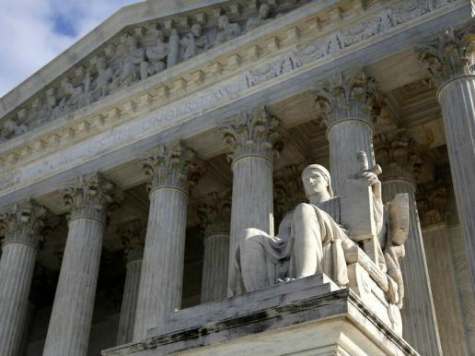
On Monday, Breitbart News reported that the United States Sixth Circuit Court of Appeals effectively blocked new election integrity laws in Ohio designed to target voter fraud. On Tuesday, the United States Supreme Court effectively reversed that decision and allowed Ohio’s new election integrity laws to take effect.
In this one page order, the Supreme Court stayed the decision of the lower court blocking Ohio’s new election integrity laws. The order said:
[T]he district court’s September 4, 2014 order granting a preliminary injunction is stayed pending the timely filing and disposition of a petition for a writ of certiorari. Should the petition for a writ of certiorari be denied, this stay shall terminate automatically. In the event the petition for a writ of certiorari is granted, the stay shall terminate upon the sending down of the judgment of this Court.
Justices Breyer, Ginsburg, Sotomayor, and Kagan all would have denied the application for the stay.
This case is enormously significant because left wing legal groups are advancing a theory of the Voting Rights Act which has never been before considered meritorious. Essentially, they are arguing that if any voting change has a mere statistical disparate impact on minorities, then the change violates federal law. In Ohio, the plaintiff’s argued that not allowing people to register to vote and vote simultaneously had a disparate statistical impact on racial minorities. The plaintiffs do not want to be bound by longstanding jurisprudence requiring a litigant to prove more than a statistical disparate impact.
Opponents of election integrity legislation seek to use this pioneering theory of federal law to block a wide range of other election law changes by claiming they impact blacks disproportionately. Because of high racial polarization in voting among minority communities, such a theory would invariably help Democrats win elections.
The lower court will now proceed on the merits of the case, or parties will seek a full hearing before the United States Supreme Court.

COMMENTS
Please let us know if you're having issues with commenting.